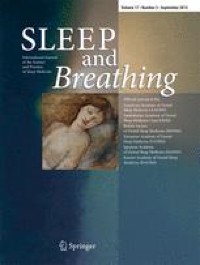Abstract
Purpose
Experts have recommended exercise for improved sleep, but often with the caveat that one should avoid nighttime exercise. The aim of this study was to challenge this recommendation in a sample who might be most prone to sleep impairment after nighttime exercise. The secondary aims were to assess whether or not post-treatment sleep was correlated with anxiolytic effects or downregulation of body temperature.
Methods
Twelve sedentary adults with insomnia completed two treatments (separated by 2–5 days) in counterbalanced order: (1) 30 min of moderate treadmill exercise (60–70% maximum heart rate) + 15 min of moderate resistance exercise and (2) a control treatment (reading). Each treatment was completed 2 h before bedtime and followed by a 10-min shower, a light snack, 8 h of polysomnographic recording, and a sleep questionnaire. State anxiety was assessed before and 30 min after each treatment and 10 min before bedtime. Body temperature was assessed from pre-exercise to wake time.
Results
No significant treatment differences in sleep were found, and Hedges g paired comparisons indicated small effect sizes; however, two participants had severely disturbed objective sleep following exercise. Significant correlations were found between change in state anxiety from pre-exercise to bedtime and TST (r = 0.69, p = 0.03). Stage 1 (r = 0.67, p = 0.03), WASO (r = 0.69, p = 0.03), and sleep efficiency (r = 0.66, p = 0.02). No significant correlations were found of sleep with temperature decline.
Conclusions
Profound sleep disturbance after exercise in some participants, and no marked sleep improvement in the others, provides some support for caution regarding late-night exercise for sedentary individuals with insomnia.



Δεν υπάρχουν σχόλια:
Δημοσίευση σχολίου
Σημείωση: Μόνο ένα μέλος αυτού του ιστολογίου μπορεί να αναρτήσει σχόλιο.